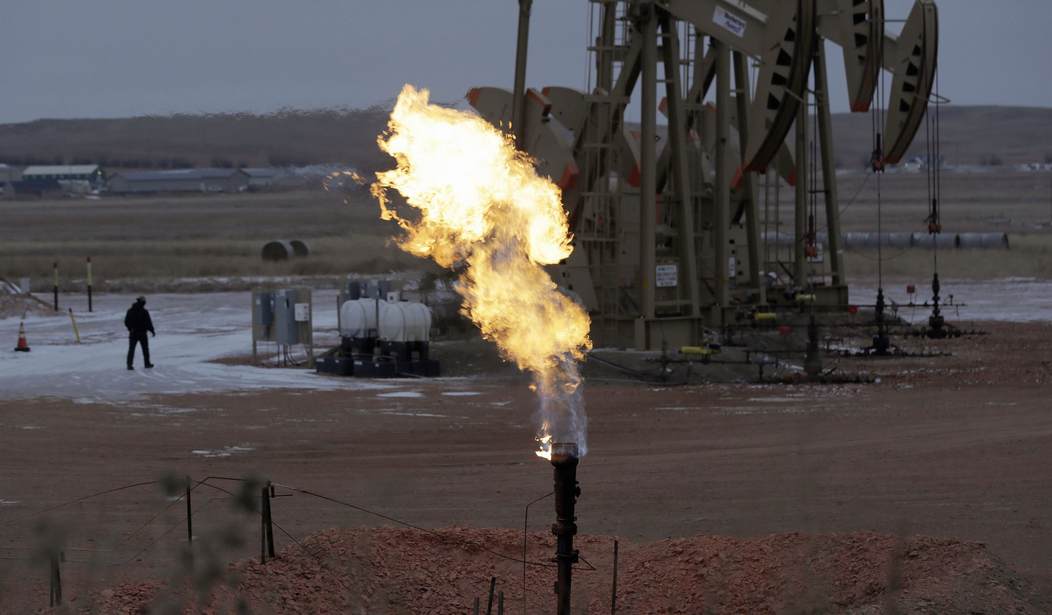More countries around the world, particularly in Europe, are realizing something that United States has known for a long time. (Or at least we knew it until Joe Biden took office.) Natural gas is one of the most plentiful and affordable energy sources we have at our disposal and it meets the needs of humanity in both heating and power generation when given the opportunity to do so. Sadly, we are still in the midst of a global energy crisis, but that issue is slowly being tamed via US exports of natural gas, particularly LNG (liquified natural gas). But this week we saw various news outlets including the Associated Press raising the alarm and saying that all of this natural gas being shipped around the planet will “catastrophically hinder” the chances of reducing global warming. Apparently, they expect a lot of people to voluntarily freeze to death this winter in the name of climate change.
The war-inspired natural gas boom is undermining already insufficient efforts to limit future warming to just a few more tenths of a degree, a new report says.
Planning and build-up of liquified and other natural gas — due to an energy crisis triggered by Russian’s invasion of Ukraine — would add 2 billion tons of carbon dioxide equivalent (1.9 billion metric tons) a year to the air by 2030, according to a report released Thursday by Climate Action Tracker at international climate talks in Egypt.
That’s enough greenhouse gas to “hinder if not catastrophically hinder chances of achieving 1.5 degrees” Celsius (2.7 degrees Fahrenheit) since pre-industrial times, the international warming-limiting goal, said climate scientist Bill Hare, chief executive officer of Climate Analytics, one of the groups behind Climate Action Tracker, which monitors and analyzes climate promises and action.
The first thing to take note of here is how the AP continues to push the White House PR line of blaming the energy crisis entirely on Russia’s invasion of Ukraine. The war certainly hasn’t helped matters any, but it’s hardly the only contributing factor to the ongoing shortages. But this incorrect explanation allows both the United States government and those of many European nations to dodge the blame for the damages their own “green energy” policies have created.
As we’ve pointed out here repeatedly, the energy production and consumption market is a complicated beast even when we’re only discussing domestic use. The international market is even more difficult to unravel. We’re not dealing with a shortage of natural gas. There is enough of it in the ground – particularly in the United States – to see us well into the next century and beyond.
But getting that gas out of the ground and transporting it to a global market requires a significant number of moving parts to all be functioning in unison. For example, Europe technically has an oversupply of natural gas at the moment. But the problem is that a lot of it is sitting on tanker ships that have no way to unload that much of it and direct it to where it’s needed. Global supply chain issues continue to plague us.
Texas is producing more natural gas than anyone could ask for, particularly in the Permian basin. But we’re still facing a gas shortage because of a combination of insufficient pipeline capacity and LNG staging facilities. That’s why much of New England is still expected to be facing rolling blackouts and potential loss of residential and commercial heating this winter.
As far as the entire climate change angle goes, the media appears to be wasting our time here. First of all, natural gas is far cleaner than coal and some types of oil in terms of carbon emissions. The natural gas industry has already slashed its emissions to the bone. But even that isn’t the main point.
Even if you are a firm believer in global warming being caused by carbon, rising sea levels, and all the rest, those are issues that are still out over the horizon and they require further study. The energy crisis is at our doorstep today. Governments in Europe have been warning the world for months that people will literally freeze to death this winter and they won’t even be able to keep all of the lights on. Meanwhile, any contributions to combatting global warming by reducing natural gas usage are already being overwhelmed by China’s continued, massive expansion in coal usage, ignoring all of the promises they made to clean up their act. In short, we need to address the wolves that are already at our door, not the ones that haven’t even been born yet.








Join the conversation as a VIP Member